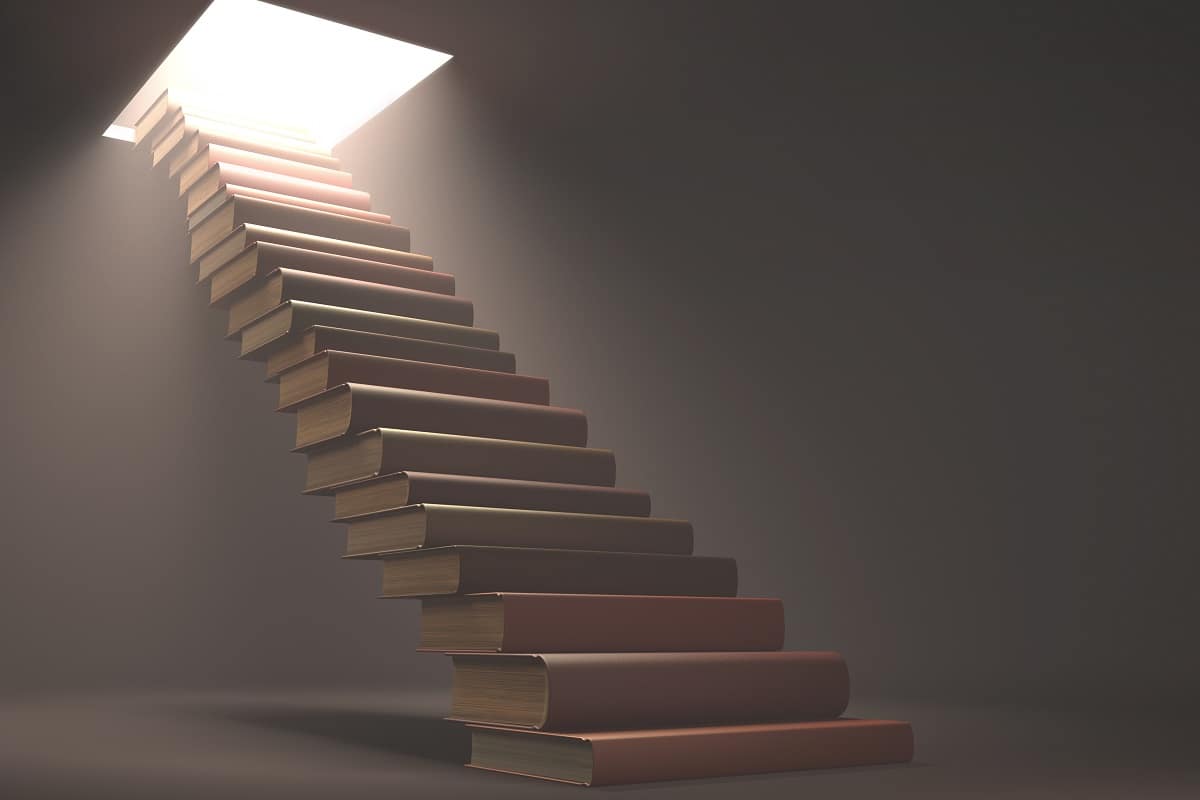From Prescott to Mosul: Book Drive Aids Library Rebuilding Efforts

Update: Jul. 9, 2018 - Embry-Riddle Aeronautical University has been notified that the books raised during the Prescott campus book drive to aid the Mosul Central Library’s rebuilding effort have been received. Those working to reconstruct the library in Iraq have produced a video of thanks to Embry-Riddle students, staff, faculty, and everyone in the surrounding Prescott area for their contributions.
“This precious collection of scientific and humanitarian books will support the students of Mosul University and other universities in the province after the complete destruction of our library by the terrorist organization ISIS,” said Mohammad Jasim Mohammad, Secretary-General of Mosul Libraries. “We would like to give our thanks and appreciation to Embry-Riddle Aeronautical University in the United States for their support and donation of these books.”
The full video can be viewed below. (Translation by Dr. Tarek Mahmoud, Embry-Riddle Professor of Arabic)
Jul. 10, 2017 - In June, Embry-Riddle's Prescott Campus shipped over 200 boxes of donated books overseas to Mosul, Iraq in a volunteer effort to help replenish what was lost when ISIS ransacked the Mosul Central Library in February of 2015. After the destruction of what was believed to be over 100,000 books and manuscripts, Iraqi newspapers, maps, and collected works from the Ottoman period, a world-wide call for aid was heard by Embry-Riddle's Honors Program and the Phi Kappa Phi Honor Society.
"When the book drive began, I notified [our contacts] in Mosul that I was confident we could get a few hundred books," said recent graduate of Global Security & Intelligence, James Gulliksen. "I had no clue Embry-Riddle and the surrounding Prescott community would garner up several thousand. Our final shipment was about 6,200 books in 10 different languages"
As a student of Global Security & Intelligence, Gulliksen had been monitoring the advance and decline of the Islamic State organization in Iraq and Syria until late 2016, when Iraqi forces, supported by the US-led coalition, began the liberation of Mosul from Islamic State control. Mosul Eye—a blog in Mosul devoted to reporting on life before and after Islamic State rule—suggested the idea of a book drive to its readers, inspiring Gulliksen to reach out to student leadership of the Honors Program and Phi Kappa Phi Honor Society in hopes that they too would agree to support the library rebuilding efforts.
"The idea of providing a massive collection of books to a community that has had their right to learn violently removed is an idea that embodies all of the best in the ERAU Honors Program, the Phi Kappa Phi Honor Society, and Embry-Riddle as a whole," said Gulliksen. "In a community where civilians feel the scourge of violence, malnourishment, and torture, the notion of rebuilding a library is at the core of Phi Kappa Phi's motto: 'Let the Love of Learning Rule Humanity.'"
The library rebuild consists of both recovering what books could be found in the library wreckage, and retrieving books from around the world—including over four tons from Prescott. The organization and management of a book drive of this scale led Gulliksen and his team to encounter the practical obstacle of how to store and ship over 6,000 books.
"The library's staff, Undergraduate Research Institute (URI), and Dr. Kelly O'Brien in Study Abroad were all extremely gracious with their work space and allowed us to store books before they could be sent," added Gulliksen. "Also, establishing the logistics of sending such a large shipment was a huge hurdle."
Embry-Riddle Honor students, as well as students who are accepted into the Phi Kappa Phi national honor society, are encouraged to seek out volunteer opportunities which will put the students' interests, education, and world view toward giving aid to a cause. For Gulliksen, understanding the need and answering Mosul's call was not just to supply their library with books; it was to help the liberated city heal its community.
"A library is more than only books," said Gulliksen. "I think the research is clear that people become radicalized due to several underlying causes, including illiteracy, broken social relationships, and a lost sense of community. In a city like Mosul, a library is a tool to solve all of those problems."

 Keaton S. Ziem
Keaton S. Ziem